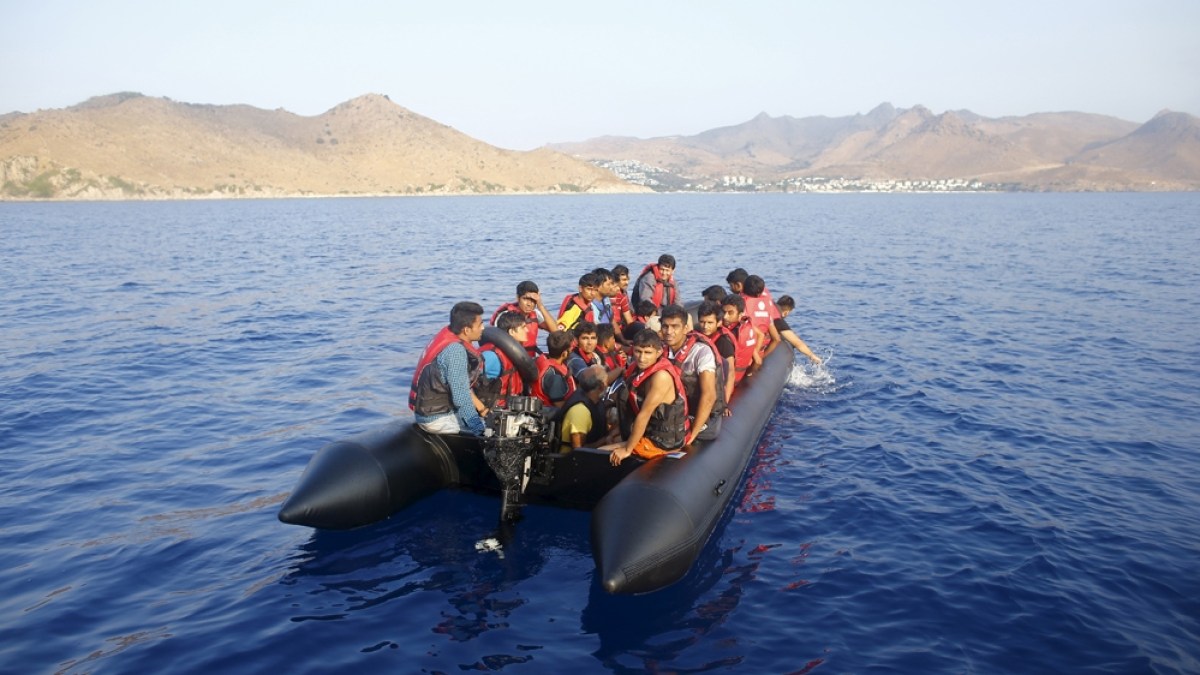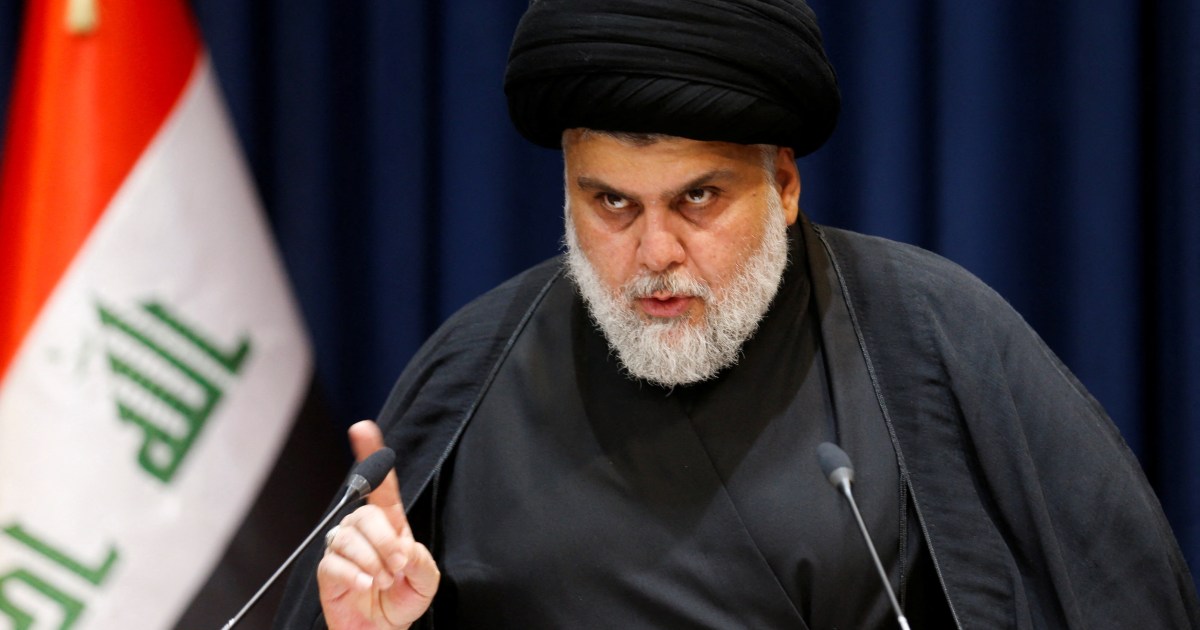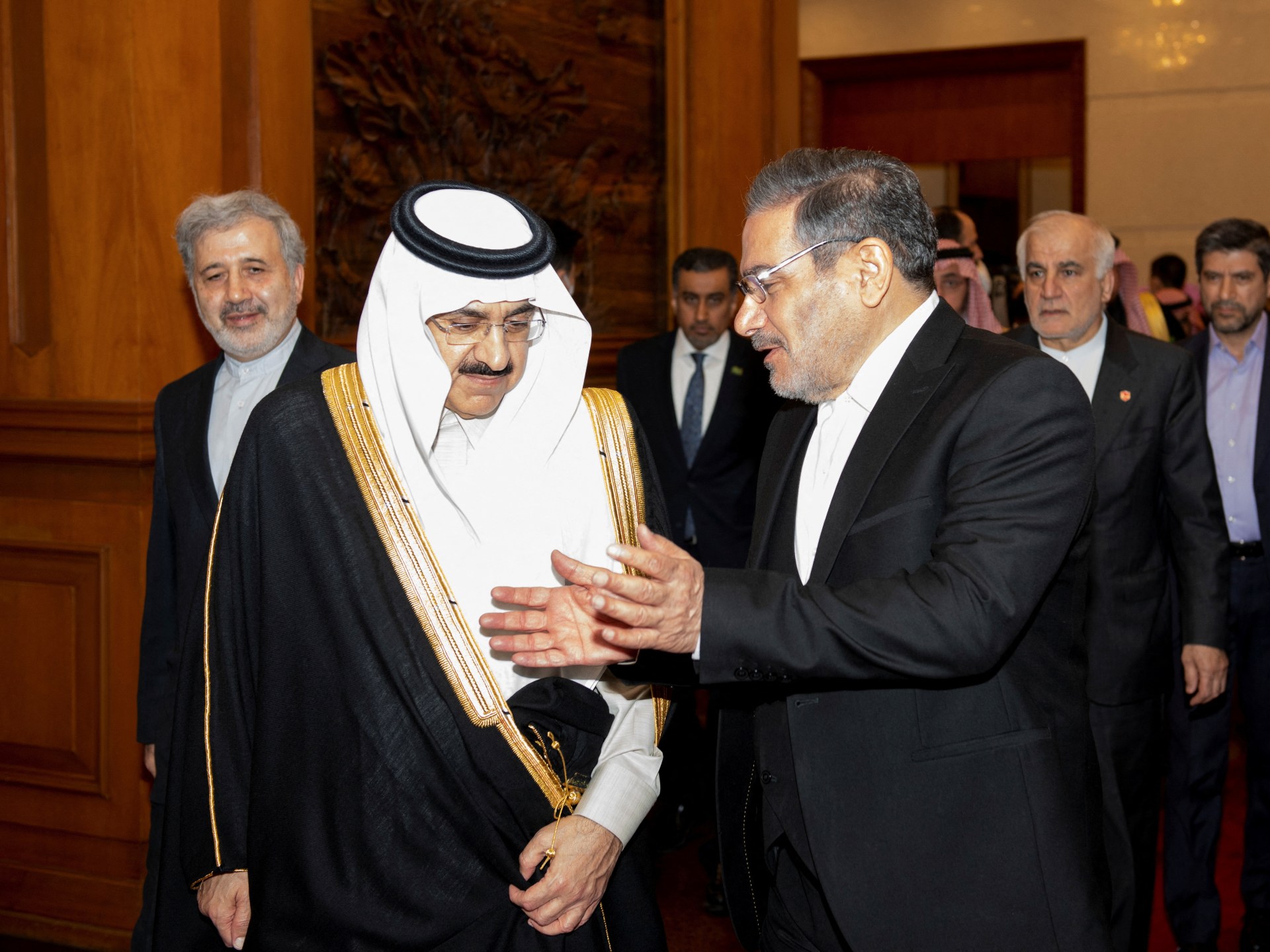Greece, Turkey spar on Twitter after 92 refugees found stripped | News
Athens, Greece – After 92 asylum seekers were found stripped naked on the Greek side of the Evros River on Friday, Athens and Ankara are again trading accusations of ill-treatment of refugees, taking their fight public on Twitter.
The river forms part of the border between the two countries, and the asylum seekers, all men, are mostly from Afghanistan and Syria. Some have roots in Iran, Morocco, Pakistan and Bangladesh.
Greek police and European border guards from the EU border agency Frontex found them on the river bank on the morning of October 14, “abandoned, completely naked, and completely unequipped”, said a Greek police statement.
The men were held at the police precinct of Feres, five kilometres (three miles) from the border, for three nights before being taken to the First Reception Centre of Fylakio for registration and asylum processing.
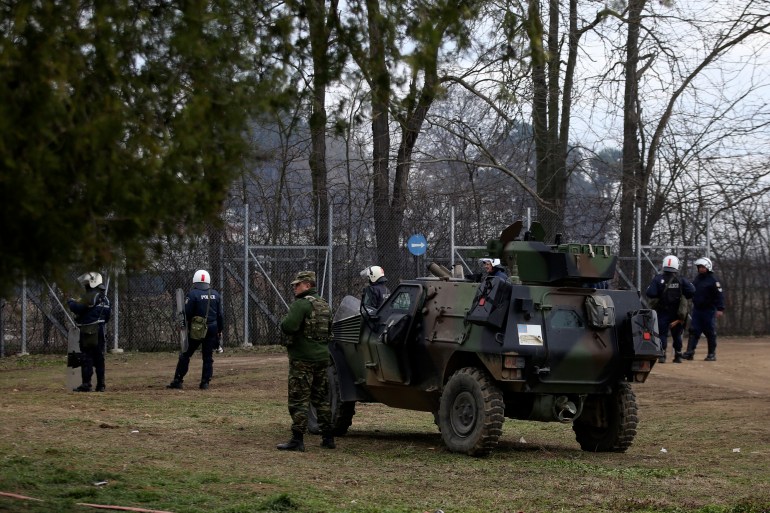
Greek police say the men told them Turkish authorities drove them to the border in official vehicles, before boarding them onto rubber dinghies and telling them to cross.
“They told us it took the Turkish military police 24 hours to gather everyone at the river’s edge, which apparently was an ordeal because the people had no food or water at that time, and then after stripping them they pressed them to cross,” Manos Logothetis, head of Greece’s First Reception Service, told Al Jazeera.
Greek migration minister Notis Mitarachi tweeted, “I have requested & will see the president of the UN General Assembly in New York, I have informed the Commission & will show photos & videos.
Για το ντροπιαστικό συμβάν με τους 92 μετανάστες στον Έβρο η Τουρκία είναι σε δύσκολη θέση. Δυστυχώς έγιναν αντικείμενο εξευτελιστικής συμπεριφοράς. Ζήτησα & θα δω στη Νέα Υόρκη τον πρόεδρο της Γενικής Συνέλευσης του ΟΗΕ, έχω ενημερώσει Κομισιόν & θα δείξω φωτογραφίες & βίντεο. pic.twitter.com/68KxZzafuC
— Νότης Μηταράκης – Notis Mitarachi (@nmitarakis) October 17, 2022
“[Turkey’s] behaviour towards 92 migrants whom we rescued at the borders today is a shame for civilisation,” he said. “We expect Ankara to investigate the incident and protect at last its borders with the EU.”
Turkey has a 2016 agreement with the EU to hold back refugees trying to cross into Europe.
Turkey’s presidential office said Mitarakis “is once again conducting perception management tactics by using the photos of stripped naked migrants for which there is no location, nor any date provided”.
Η μηχανή των ελληνικών ψευδών ειδήσεων είναι και πάλι σε λειτουργία… Μπερδεύοντας την Ελλάδα με την Τουρκία, ο Υπουργός Μετανάστευσης και Ασύλου με τις αναρτήσεις ψευδών, λανθασμένων περιεχομένων προσπάθησε να καταδείξει τη χώρα μας ύποπτη.
— Fahrettin Altun (@fahrettinaltun) October 16, 2022
Posting in the Greek language, Turkish government spokesman Fahrettin Altun wrote on Twitter, “We warn Greece to abandon its harsh treatment of refugees as soon as possible, to cease its baseless and false charges against [Turkey], and to deliver the dignity of government.”
Turkey also posted a lengthy statement on its official website accusing Greece of regularly abusing refugees, posting photos it alleged were evidence.
The Greek migration ministry told Al Jazeera that evidence of the recent event cannot be made public because it is part of a legal file at the Citizens’ Protection Ministry.
The UN issued a statement saying it was “deeply distressed … by such cruel and degrading treatment”, and called for an investigation.
A troubled border
Greece and Turkey have been in a full-blown information war about who is mistreating refugees since March 2020.
That is when Turkey said it was unilaterally abandoning its 2016 treaty obligation to hold back or readmit asylum seekers, accusing the EU of failing to live up to its own obligations under the treaty.
Turkey encouraged asylum seekers to storm the Greek border, ferrying many to Eastern Thrace at state expense. Greece has since built a steel palisade along 12km (7.4 miles) of its land border with Turkey, and announced it will extend it along the entire 140km (87 miles) length.
The EU has also spent millions of euros installing experimental surveillance systems along that border.
It is unclear why, if the 92 men were being assembled over a 24-hour period, the incident came as a surprise to the Greek authorities.
Turkey routinely accuses Greece of pushing refugees back without processing their asylum claims, which is illegal under the Geneva Convention of 1951. And Greece routinely accuses Turkey of pushing refugees forward to blackmail Europe for more money to care for them.
Apostolos Veizis, head of Intersos Hellas, an NGO caring for refugee children, points out that the 92 men landed in Greece on a particularly humiliating day for Greece and the EU.
On October 14, OLAF, the European anti-fraud authority, published a report in which it found individuals at Frontex, the European border and coast guard, complicit in Greek pushbacks.
Frontex replied it had taken remedial action, but did not rebut the accusations.
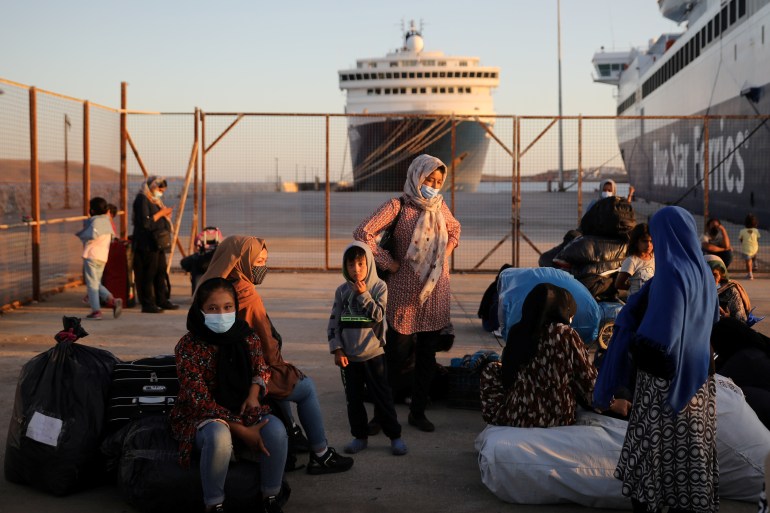
Stripping refugees or demanding they remove some clothes have been used before as intimidation tactics.
Al Jazeera this year reported the story of Parvin, an Iranian psychologist who tried to enter Greece six times. She testified that police in the Evros area took her jacket away, and the men pushed back to Turkey with her were left with T-shirts in near-freezing weather.
The NGO Human Rights Watch says Bulgarian officials have stripped asylum seekers before sending them back to Turkey.
Stripping has also been used as a form of national disparagement.
Last February, Greece rejected Turkish accusations that its border guards stripped and summarily expelled 12 asylum seekers who later died of exposure in Turkey, near Greek borders. Turkey has also accused Bulgaria of similar tactics.
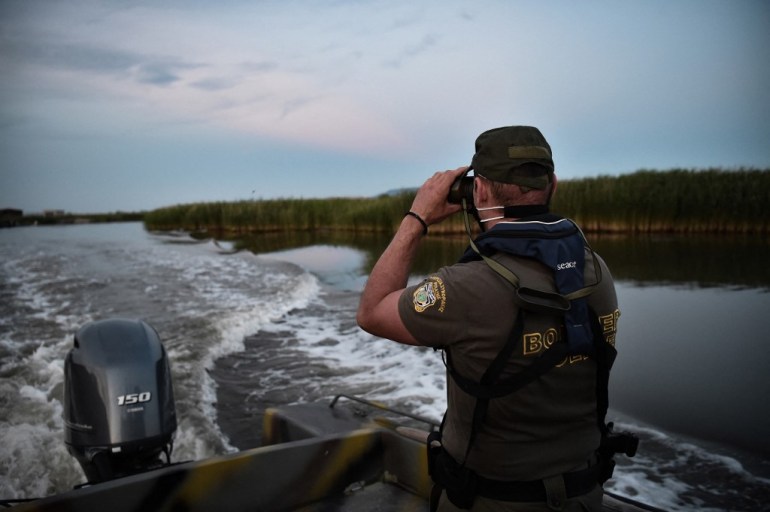
Greek officials claim Turkey carefully planned the latest incident.
“Nothing leaves Turkish soil without the authorities’ knowledge,” deputy education minister Angelos Syrigos said.
Lieutenant General Andreas Iliopoulos, who. in 2015, led the Supreme Military Command for the Interior and Islands (ASDEN), which is in charge of the National Guard in the Aegean, said the “instrumentalisation of refugees” is continuing, pinning blame on Turkey.
“Psychological operations are part of this and their ultimate recipients are the EU, UN and NATO,” Iliopoulos told Al Jazeera.
“The message is that whatever we do, Turkey will always be one step ahead … Greece and the EU cannot prevent these moves. Not even the [border] fence can, because when people land on this side of the Evros they are still on Greek soil, and Greece and the EU are responsible for whatever happens to them,” he said.
Veizis believes the latest incident is part of a publicity campaign to slur Greece, but that few people care.
“Once the EU handed over to Greece the job of being a European shield, and we accepted, they washed their hands of it,” Veizis said. “It’s become more of a Greek-Turkish ping-pong.”

